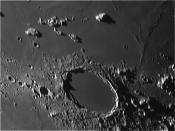PLATO AND NIETZSCHE
When people are born, they do not know the difference between right and wrong. Plato is a philosopher who believes that things are inborn. It is to say that, when a human being is born his soul knows everything, but at the beginning, the mind is a tabular rasa (blank state). As he grows day by day, he recollects the knowledge from his soul. Before uniting with the body, this soul is the human mind. After the union of the human body and the mind, the mind contains the knowledge deep in the memory. According to Plato, true knowledge in this world is made up of remembering, in reminiscence or recollection. The essence of knowledge is recollection. This thesis gives a man the ideas that he later becomes conscious of by recollection. The theory of recollection may explain why people often say that they had certain knowledge before they heard it for the first time.
In simple words, Plato's theory states that when people think about something and find an answer to a problem, they are recollecting things that they already knew. The reason why he set up such a theory is that according to him it seems to be an impossible task to be able to come to know something without already knowing it. Meno points out "If we do not know what something is, if we try to find it how will we know when we have? When, for example, we say that we do not currently know what 358721 multiplied by 54 is, how is it that by some means, we can come to discover that it is in fact 19370934? Surely, if we don't already know that 358721x54=19370934 then when someone presents this is to us as a fact we should...


